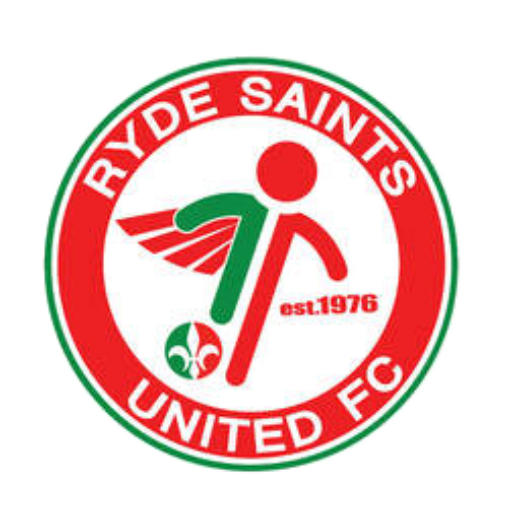Working With Children Requirements
WORKING WITH CHILDREN CHECK
WWC Information for Volunteers and Workers
The WWC Check is a Government requirement applicable to persons who work or volunteer with children.
Persons cleared through the WWC Check process are issued with a WWC Number.
If you already have a WWC Number, you must provide it to your club.
If you do not have a WWC Number, you will need to apply on-line for a WWC Check.
Before applying refer to the exemptions list (below) as some people are exempt from the WWC Check.
A WWC Check is free for volunteers.
To Apply for a WWC Check
1. To apply for a WWC Check CLICK HERE
2. Once you have applied on line you will receive an Application (APP) number and other information.
3. Take your APP Number and Proof of ID to a Motor Registry.
4. Application Fee: If you are in a paid position you will pay $80 at the motor registry for your Check.
5. The WWC Check is free for volunteers.
6. Within approximately 2 weeks of visiting the motor registry you should receive your WWC Number by email.
7. You must then provide your WWC Number to your club.
WWC Exemptions
Exemptions in sport include:
- Persons under 18 years of age
- Referees
- Volunteer parents who only coach or manage their own child’s team
- Volunteers who only coach or manage a close relative’s team (see definition below)
- Canteen managers, canteen workers and caterers
- Grounds persons
“Close Relative” – A spouse or de facto partner of the person; or a child, step-child, sibling, step-sibling, parent, step-parents, (grandparent, step-grandparent, aunt, uncle, niece or nephew of the person only if they reside with the child).
For more information about Exemptions click here
www.ocg.nsw.gov.au
What do Exempt Persons sign?
Exempt persons must complete a FNSW Member Protection Declaration and provide it to their club.
Referees must complete a MPD form and provided it to their Referee Branch.
Only persons exempt from the WWC are permitted to provide a MPD form instead of a WWC Number.
FOR MORE INFORMATION GO TO and other links:
Football NSW Club Information Working with Children
Kids Guardian Facebook page:
https://www.facebook.com/pages/Office-of-The-Childrens-Guardian/365866326936513?sk=timeline
ROLE OF COACH AND MANAGER
Coach: The coach’s role is one of teaching football skills and sportsmanship to the players. The coach is also responsible for monitoring the behaviour of the players and parents during practice and games. All coaches shall promote good sportsmanship among players, foster team camaraderie, and help participants have fun while teaching players the technical skills of football. By accepting to coach a football team, each coach agrees to the code of conduct, certifies that he/she has read these rules and will abide by them and acknowledges that coaching football is a privilege and not a right. In addition, each Coach will ensure that his/her conduct sets a good example for team members and spectators. To meet these responsibilities, the Coach is expected to:
- Equal playing opportunities and attention for all no matter the standard of football or an individual’s ability ensuring a positive experience for every player
- Don’t over play your best players. All should get equal amounts of playing time
- Don’t be too demanding of your players. They are young and still learning.
- Be sympathetic and caring to injured players from both teams
- Don’t teach kids how to ‘cheat’, stick to the rules
- Make sure your players respect and show good manners towards team mates, opponents, referees, parents and managers/coaches. The best way to teach this is to do it yourself.
- Don’t argue with the ref, if you have a grievance take it up with them at half time or after the game
- Make training sessions useful but fun. Limit the amount of talking in sessions and encourage your players even if they are getting it wrong. And if a player needs to be pulled into line, don’t send them running around the field as punishment, get them to sit the session out for 5 minutes and do a fun drill so they miss out.
- Keep training sessions at the correct level for your age groups and ensure that as a coach you are up to date on the latest training techniques.
- You are a mentor not a drill master. Get your players to enjoy you, your ideas, your training sessions and most of all football.
- We all like winning but winning easily is no fun for anybody. If you are winning easily make it harder for your team to score (remove a player, set number of passes before a goal can be deemed a goal etc)
- Know the official rules of football, and the rules of our association, and abide by them.
- Instruct players and parents in the rules and motivate each player to compete according to the rules at all times.
- Ensure that all players and spectators follow association and club rules and regulations.
- Ensure that fans of his or her team exhibit sportsmanship and maturity at all times and assist league and game officials in maintaining control of spectators during games.
- Respect the coaches and players of the opposing team before, during, and after the game.
- Take appropriate steps to minimize scoring in runaway games.
- Teach each player, especially through personal example, to be humble and generous in victory and proud and courteous in defeat.
- Maintain control of his/her emotions and avoid actions, language, and/or gestures that maybe interpreted as hostile and humiliating.
- Teach and practice good sportsmanship and fair play by personally demonstrating commitment to these virtues.
- Promote the concept that football is merely a game, and that players and coaches on other teams are opponents, not enemies.
- Know emergency procedures- ambulance telephone numbers & first aid.
- Be capable of working miracles on a regular basis!!!
Manager: The manager’s role overlaps with that of the coach and is to support and assist the coach and players. The manager is also responsible for monitoring the behaviour of the players and parents during practice and games as well as many of the other tasks expected of the coach listed above. In addition there are some specific tasks: Communicate practice and game times to the players and parents




